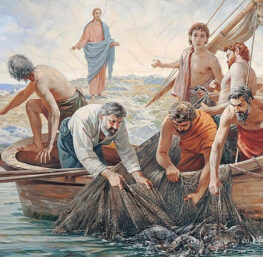There was an honest, forthright case for ending the life of Terri Schiavo. It was that her life no longer had any value, for herself or others, and that ending it — the quicker the better — would spare everyone misery. We disagree with that view, holding it wiser to stick with the Judeo-Christian tradition on the sanctity of innocent life. But the people who made this case deserve some credit for straightforwardness.
But while the public may have agreed with the removal of Schiavo’s feeding and hydration tube, apparently there are limits to the public’s willingness to tolerate euthanasia — and apparently its defenders recognized these limits. So we saw euphemism after euphemism deployed to cloud the issues.
Perhaps chief among these was the fiction that we were “letting her die.” On March 18, Schiavo was in no medical danger of death. She was profoundly brain-damaged (although just how profoundly remains unknown), but she was not in a coma or on a respirator. She was not being kept alive by artificial means, any more than small children are kept alive by artificial means when their parents feed them. Her body was functioning, there is some reason to believe she was minimally conscious, and she was responsive to stimuli (it’s been reported she was actually being administered pain medication). She had devoted parents and siblings who were willing to care for her. She could easily have gone on in these conditions for many years. She was not close to dying. For death to arrive, she would have to be killed.




Hate Crime or Religious Vilification Laws in Australia
Two protestant ministers were convicted in Australia of “religious vilification” of Islam. Here is a citation to a lot of information on that issue. If you can’t find the link, go to the site and use the search function to search for the word “vilification” and you will find the story.
Somehow only non-Christians get protected under these laws.
http://www.jihadwatch.org/dhimmiwatch/archives/004485.php
Hate Speech and Speech Crimes in Canada
In all seriousness, I would advise you to be careful what you say in Canada.
Here is a website that keeps up with religious issues in Canada from an traditional (believes in God!) Anglican point of view. http://www.anglican.tk
A Canadian Muslim leader stated in public that “all Israelis were legitimate military targets” and his comment was considered legitimate, i.e., not a violation of hate speech laws. By contrast, a Canadian law school censured a law student who wrote an article in a student publication that criticized sharia law.
I honestly don’t think what happened in Canada will happen here for several reasons, mostly because Canada’s Constitution differs greatly from ours (the “not withstanding clause” which I’m sure Missourian would be happy to explain) as well as the fact that we value our freedom of speech in this country too much (perhaps with the exception of those at the FCC).
Check out this site: it’s about as radical of a (supposed) Christian message as one can get yet I’m unaware of any attempts to prosecute them. As appalling as the message is, I support their right to say what they have to say within legitimate forums, and I think most Americans would agree.
Woof.
James, I’m inclined to agree with your second paragraph, but I’m curious: What do you mean by “intended forums?”
I’d think legitimate forums would include houses of worship, academia, public debates, etc. Of course this freedom of speech is a two-way street: preaching that Americans are “infidels” within our borders will have to be tolerated as well.
Now, when we start making calls to incite physical violence, we’re entering another territory. However, I don’t think there are any churches (well, outside of Topeka, Kansas) that are calling for the public stonings of fornicators. Likewise, I would think that explicit calls for violence against Americans could quite possibly be considered criminal activity.
James,
I grew up in the deep, deep South. Though I am under 40, I remember saying the Lord’s Prayer every morning with one of my black teachers in elementary school. In my community, school children had always said the Lord’s Prayer. It was assumed that school children would always say the Lord’s Prayer. Even after the Supreme Court decision, this kindly black woman kept on praying every morning. She once told the principal that she’d stood up to the KKK in white robes, and she surely wasn’t afraid of no judges in black ones.
No one could have imagined, until it happened, that Bible reading and group prayer would be banished from the schools in the South. Just as no one thought, until it happened, that abortion would become a Constitutional right, or that we would be concerned about homosexual marriage being pushed onto our community. No one foresaw that courts would control school policy, or any of the other myriad of ways in which courts now intrude into our communities.
That is why I never, ever say anything is out of bounds. Too much, like the Terri Schiavo case, that I thought impossible has come to pass. Liberals of all people, this far into the Bush Administration, should understand that if the PATRIOT Act can become law, then anything truly is possible.
Cananda and Australia may be different countries with different Constitutions, but we share a common ancestry and similar worldviews. What is happening there, can happen here as well. Political Correctness already stifles debate in many forums, the idea of the judiciary pushing ‘hate speech’ to an extreme in stifling the Christian message is neither far-fetched, nor is it impossible.
What I am looking for are politicians that are willing to stand up, if necessary, to the judiciary. I’m looking for men and women of principle who will say, “This is wrong, and I’m not going to do it.” Such people would make me feel a lot safer.
Checks and balances and procedures don’t protect liberty. People protect liberty, and I see a lot of people more dedicated to procedures than to protecting freedom.